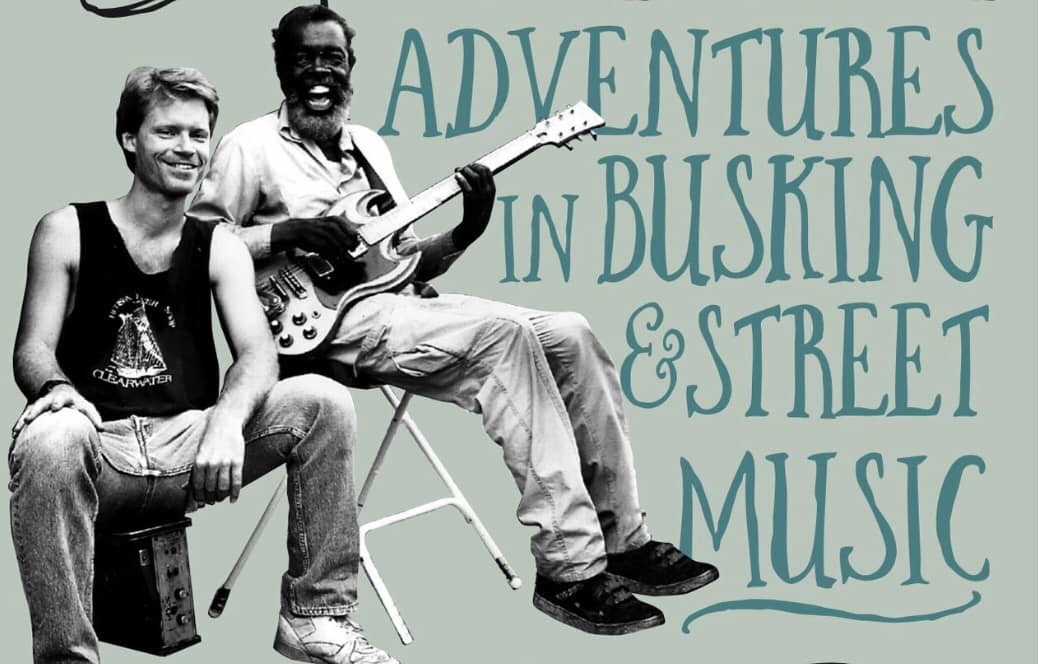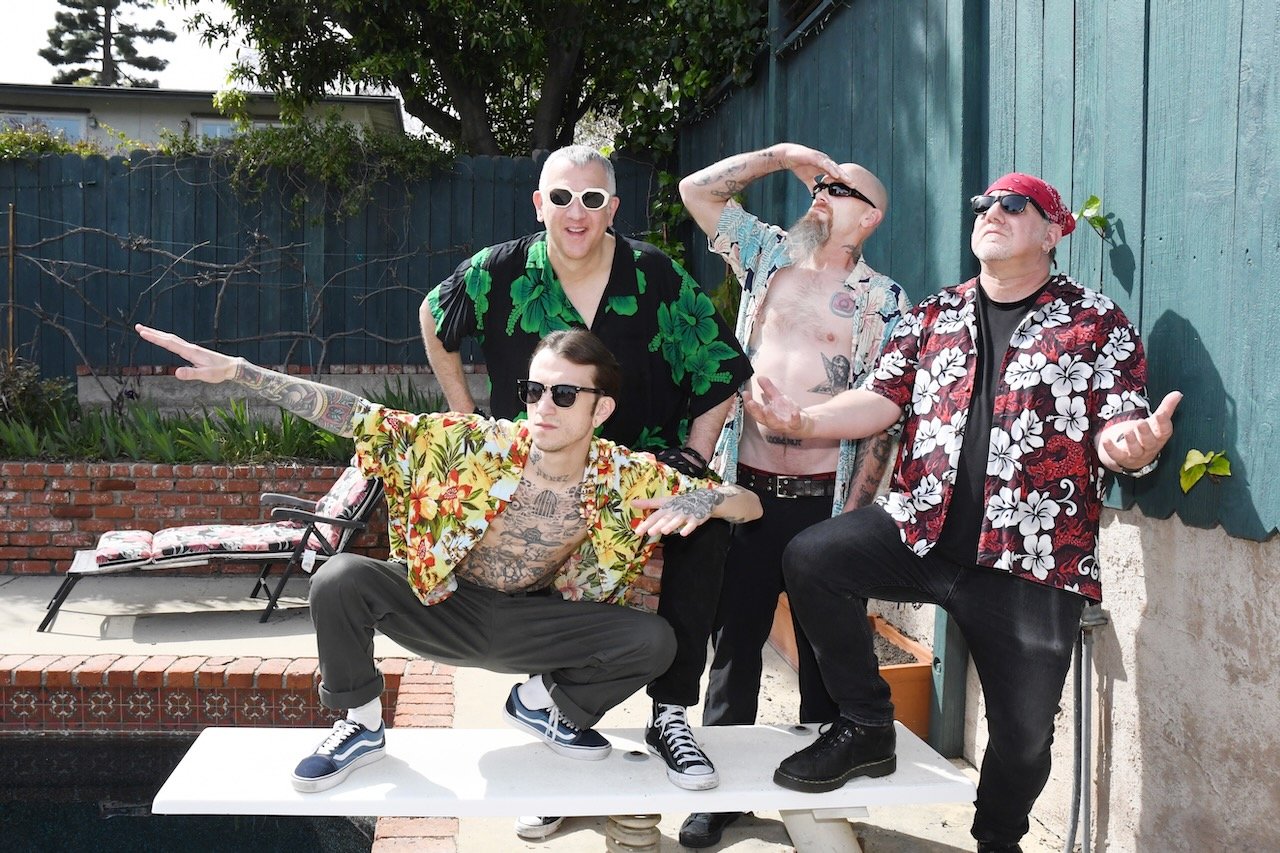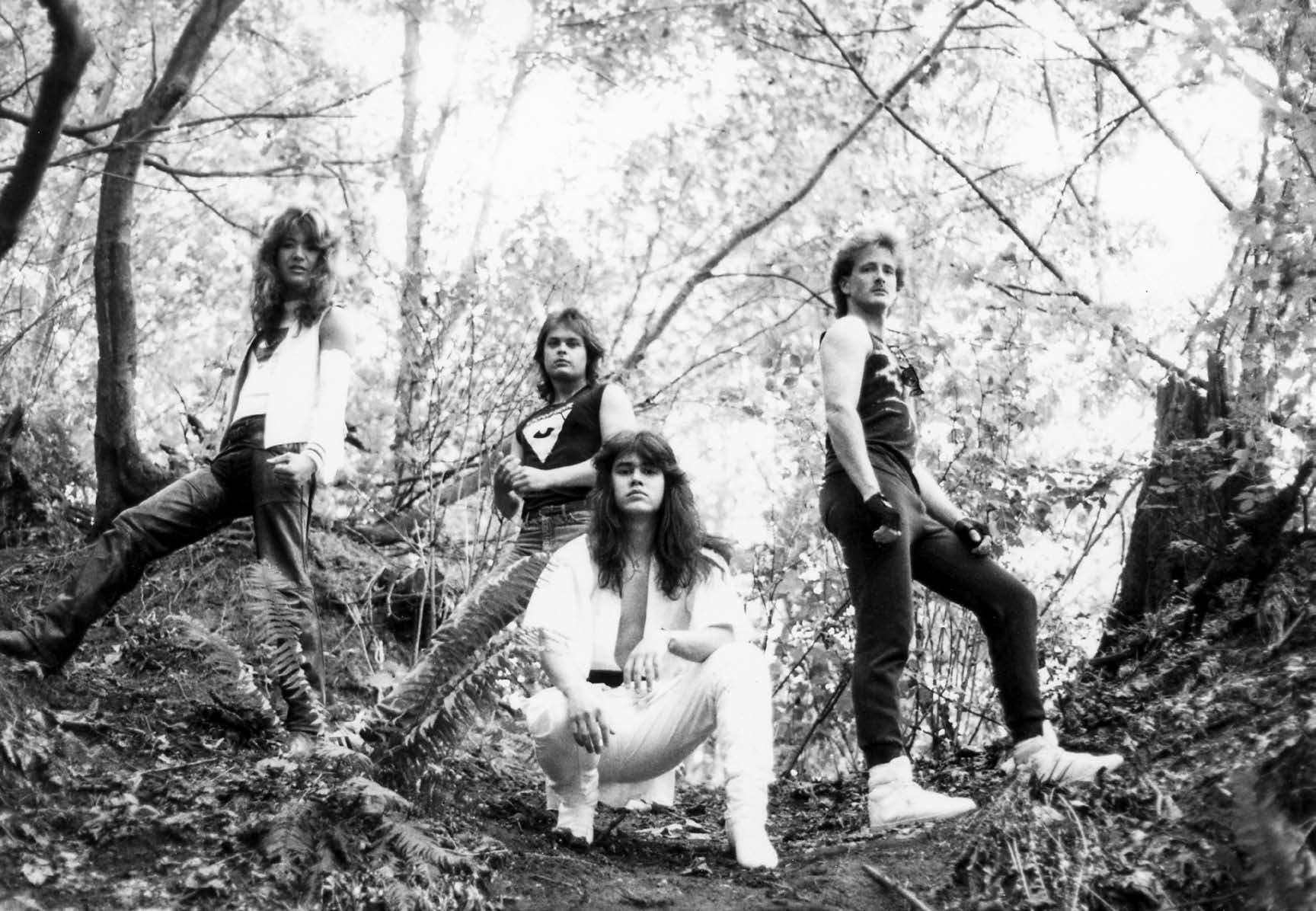Asimov interview with Carlos Ferreira
Asimov is a heavy psych band from Lisbon, Portugal. They are spreading their own kind of psychedelic rock since 2011. They released two hypnotic, motoric beat driving albums that at times sound similar to kings of oblivion like Can, Amon Düül II and also Hawkwind. Recently their approach dramatically changed and the collective is now called Asimov and The Hidden Circus. Now there’s two guitarists and also a cello player producing astonishing cumulative sound.
When and how did you all originally meet?
It all started what seems to have been yesterday but actually happened some time ago, early 2000’s. Me and João [Arsénio, drums] grew up on the same town on the outskirts of Lisbon. Back then I had a band called Brainwashed By Amalia and the original drummer had left. We had just gotten a second guitar player (Pedro Madeira, aka Peter Wood, who plays with us nowadays in ASIMOV AND THE HIDDEN CIRCUS) and it was him that knew João.
Come up the years and countless bands and half bands later, I had recorded Algures No Mundo É noite (ASIMOV’s first record) with the original drummer from Brainwashed By Amalia and the moment I had finished that record, I got a call from João saying that of all the people he knew, he wanted to start a band or at least try to start a band with me. “Well”, I said, “That’s interesting because I just finished a record and I got no one to play it with. Want to hear it and, if you like it, do you want to give it a go?”. That’s how ASIMOV started basically, some time around 2011.
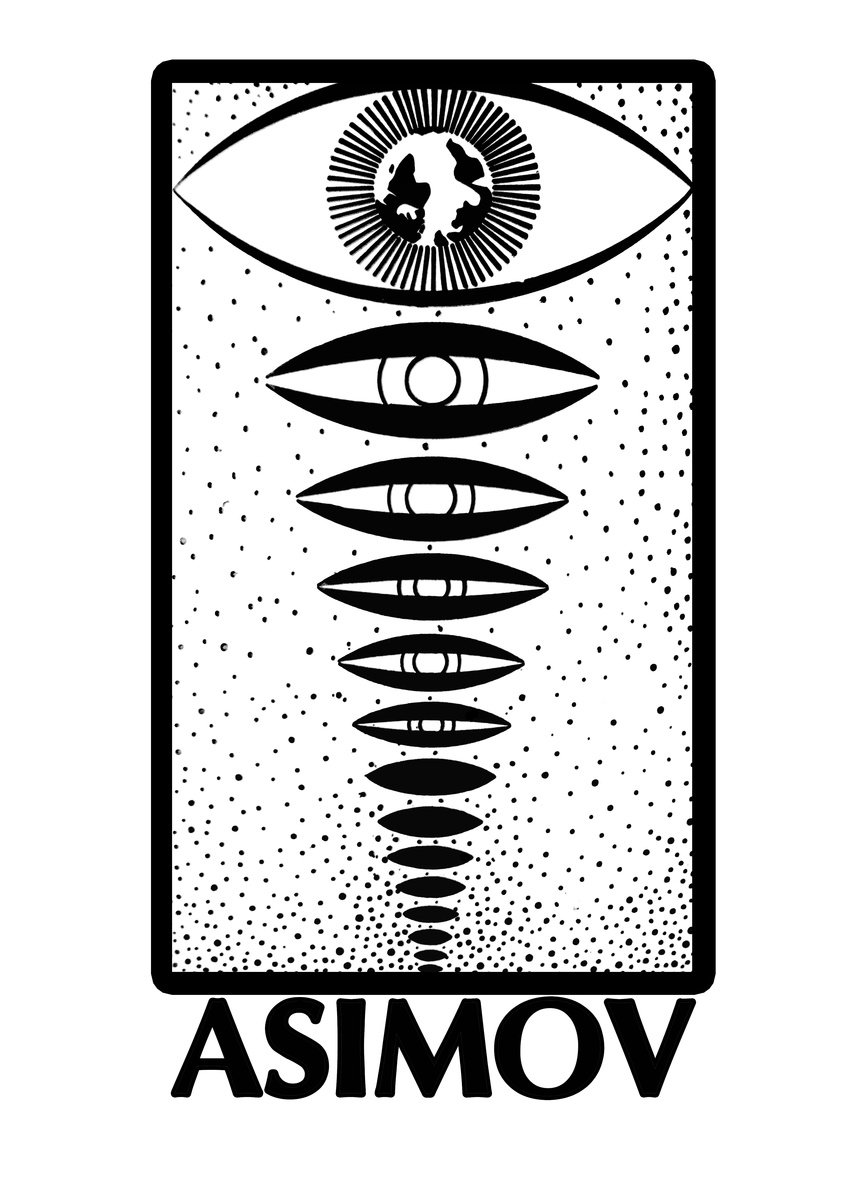
The real interesting bit is, even before that, João tells the story of how he saw a gig of a shambolic noise experiment I had at our high school and told his friends “One day I’m going to have a band with that guy”. We were 18 years old, 15 years ago. Even more interesting is the fact that João and Pedro have known each other before adolescence. Again, the story of how those two met is interesting. It involves a Sesame Street book! So we all know each other for a very long time now.
Eventually we finally found the right bass player when we met Rodrigo who had a band called The Blue Drones. Though younger than us he comes from the same background. Both musically and geographically. That’s when ASIMOV, the heavy psych trio, became complete.
What do you consider to be your first real exposure to music?
At the ripe age of five.
I have an older brother with an eight year gap between us and a cousin which is even older. So when they started listening to music (mainly hard rock and heavy metal), I had no escape but to rock out to AC/DC, Judas Priest, Motörhead, Kiss, Whitesnake, Dio era Sabbath and Ozzy solo records. From there we learned that Ozzy was the original singer for Sabbath, Lemmy was the bass player of a ‘weird’ band called Hawkwind and some members of Whitesnake actually came from a band called Deep Purple. From there, we went into the past. The first time I heard Sabbath with Ozzy was because of a neighbor that had a copy of Vol. 4 of this sort of mail book club with a different cover and such. “Wheels Of Confusion” was the first contact I had and though it wasn’t straight on heavy metal, we got curious of how it sounded. Heavy but not galloping.
Very important as well is the fact that my father was also into music even if just a little bit. His bands were The Beatles, The Rolling Stones, The Moody Blues and Pink Floyd. My mom was more into Leonard Cohen. “This song is so pretty” she would say listening to “Dance Me To The End Of Love”, haha!
This was around 1983 or so.
How would you describe the local scene where you are at? Are you very involved in the local scene?
I don’t really know how to answer that to be quite honest. There’s a few mini clusters of activity here and there. We really enjoy Astrodome, The Mighty Sands, Stone Dead, The Black Wizards, Alek Rein and some other bands. Because it’s a small scene, you can always find new projects with people from other bands. For example, you can find people from The Mighty Sands in Savage Ohms that have a keyboard/flute player called Violeta Azevedo that also has her own solo stuff. In Lisbon alone there’s about five or six of these mini clusters and, because it’s not the largest city in the world, it all gets intertwined. It’s sort of easy to know who does what. Not just in Lisbon but in Portugal. Since there’s no real circuit in Portugal for gigs though, it might get a bit hard to play outside of your city. Possible but depending on your expectations, it can be tiring. A Lisbon band might get a few concerts up North and vice versa but because there’s also no real means of communicating what is going on in other areas of the country rather than your own (media exposure wise), it’s easy to overlook bands from other regions. I feel I sort of stumble into what’s going on rather than being alert. Or better said, I do feel I’m alert but you got to dig to find some gold sometimes.
Our involvement on the scene exists through the fact that we’ve been around since before ASIMOV and some persons we know since our late teens became either musicians, journalists or promoters. Not all of course, some. Perhaps, we just know a lot of people, haha. I also think we are a word of mouth kind of band. In the end, we just want to get some things done in ways we feel that are lacking or, perhaps better explained, in other ways to do the same things with similar results. But we definitely wade through our own path brushing our shoulders on more established things or institutions. Even the Underground Scene has its establishments and institutions.
When did you decide that you wanted to start writing and performing your own music?
My brother and some of his best friends played together in a band. Being a kid back then, you sort of fantasies with the whole being on stage thing instead of just air guitar playing in your room. I had gotten my first acoustic guitar has a Christmas present a few years earlier and since they needed a bass player, I took up the bass for a few years. I’m actually a bass player originally. So it was fun, playing the same four or five songs we had endlessly at the singer’s garage where we practised. Tribal Gathering was the name of the outfit. We even played live three times!
What does the name “Asimov” refer to in the context of the band name? Who came up with and how did you go about choosing it?
ASIMOV started as a sort of a solo thing where I would make experiments recording stuff to know how it sounded like. I was getting into sci-fi back then. The whole space rock thing of Hawkwind. “Lord Of Light” is actually a Roger Zelazny’s book and eventually Isaac Asimov appeared on the radar. I’m not a connoisseur or anything like that but I enjoy how sci-fi might make you think of the world. Asimov’s writing really hit a chord with me. So simple yet so to the point. The first book I read from him was “Nine Tomorrows”, a book of nine tales.
Oddly enough, I also had a very detailed dream once of a non existing bar. Decoration, music, etc. I called it Asimov in my dream. So that name always rung a bell with me.
What’s the songwriting process like?
Back when we started I came up with ideas for songs and João would play over them. Normally, the structure of the song is already quite formed in my mind. Truth though is a collection of songs that came out of improvisations at the beginning of rehearsals. We come across a few hooks or melodic lines, toy around with them for a while and what we remembered, we shaped into songs. Now with Rodrigo on bass the process is the same. I might have a few ideas for songs but they are always shaped through trial and error until we feel we have a song.
Now that we have this sort of collective called ASIMOV AND THE HIDDEN CIRCUS, the process changed a bit only because now not only is there the heavy psych trio ASIMOV but cello player Joana Guerra and guitar player Pedro Madeira (aka Peter Wood). This time around it’s not only two loonies creating sounds but the combined imagination and creativity of five persons working together. Still a very spur of the moment thing. We let it slide and see what happens to learn how to play and enhance the best bits. What makes sense to repeat ‘ad eternum’ or only once on a 7 minute song. As Pink Floyd said on Live At Pompeii, we don’t really read the dots.
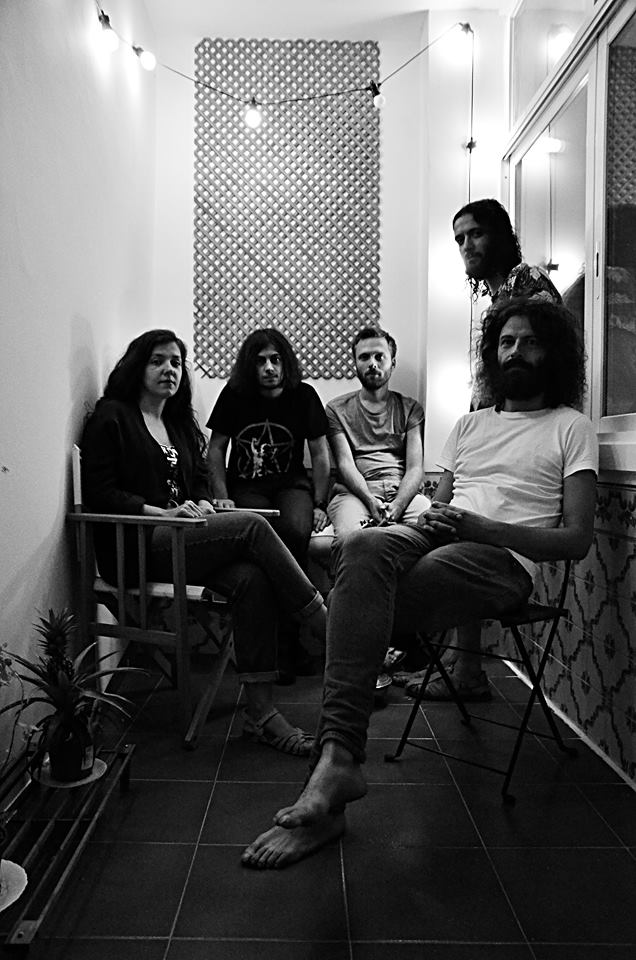
Singing wise, João is the master melody maker. It’s because of him that I try to avoid clichés and there’s lots of singing themes that he comes up with. Both “Kingsize Mark” and “The Major’s Ship” were pure instrumental tracks until João asked for and/or sang lines. I became a singer by default actually so I would just sing something following the guitar or the basic ‘1,2,3,4 Sing!’ metric. João made me change that.
What would you say influenced you the most? Have influences changed during the years?
Of course they changed over time. As I said, I was an eight year old nerdy metal head discussing with my school buddies if they preferred Sabbath with Ozzy or with Dio. They were talking about which football club was better and I just wanted to change the subject a bit. Puzzlement was their reaction. João is five years younger than me so he grew up on the grunge era. Pedro also grew up on the grunge era but he was more into metal as well. Sepultura and Anathema especially. There are a few core bands you fall back to from time to time and some bands we still enjoy. We all love Mad Season for instance. Black Sabbath and Hawkwind were my main influences. Alice Cooper Group as well. And Blue Öyster Cult. João is more into Masters Apprentices’s, Neil Young, Roky Erickson and Creedence Clearwater Revival. Rodrigo is more into the prog rock field, Rush, Floyd, Camel, Soft Machine, etc. Classics.
But our interest in music shifts when you need to hear something new. New to our ears at least. It might not seem like it but we keep trying to hear new angles to approach music. That’s when we exit the Anglo world and search for music from other places. Zamrock, Anatolian Rock, the Swedish and Japanese 70’s scene, South American psych and rock from Peru to Brazil, etc. That’s when it gets interesting because even though those bands wanted to rock, they couldn’t escape their origins and it pervades into the music. Out of the countless versions of “Louie Louie”, “Born To Be Wild” or Beatles/Stones songs, if you’re from Indonesia, it will sound different than if you’re from California.
Let’s not forget as well that Eastern music influenced Western music quite a lot in countless ways. If you listen to Khun Narin’s Electric Phin Band, it’s just a street band doing weddings but what is traditional for Thailand, is exotic and otherworldly for us northern westerns.
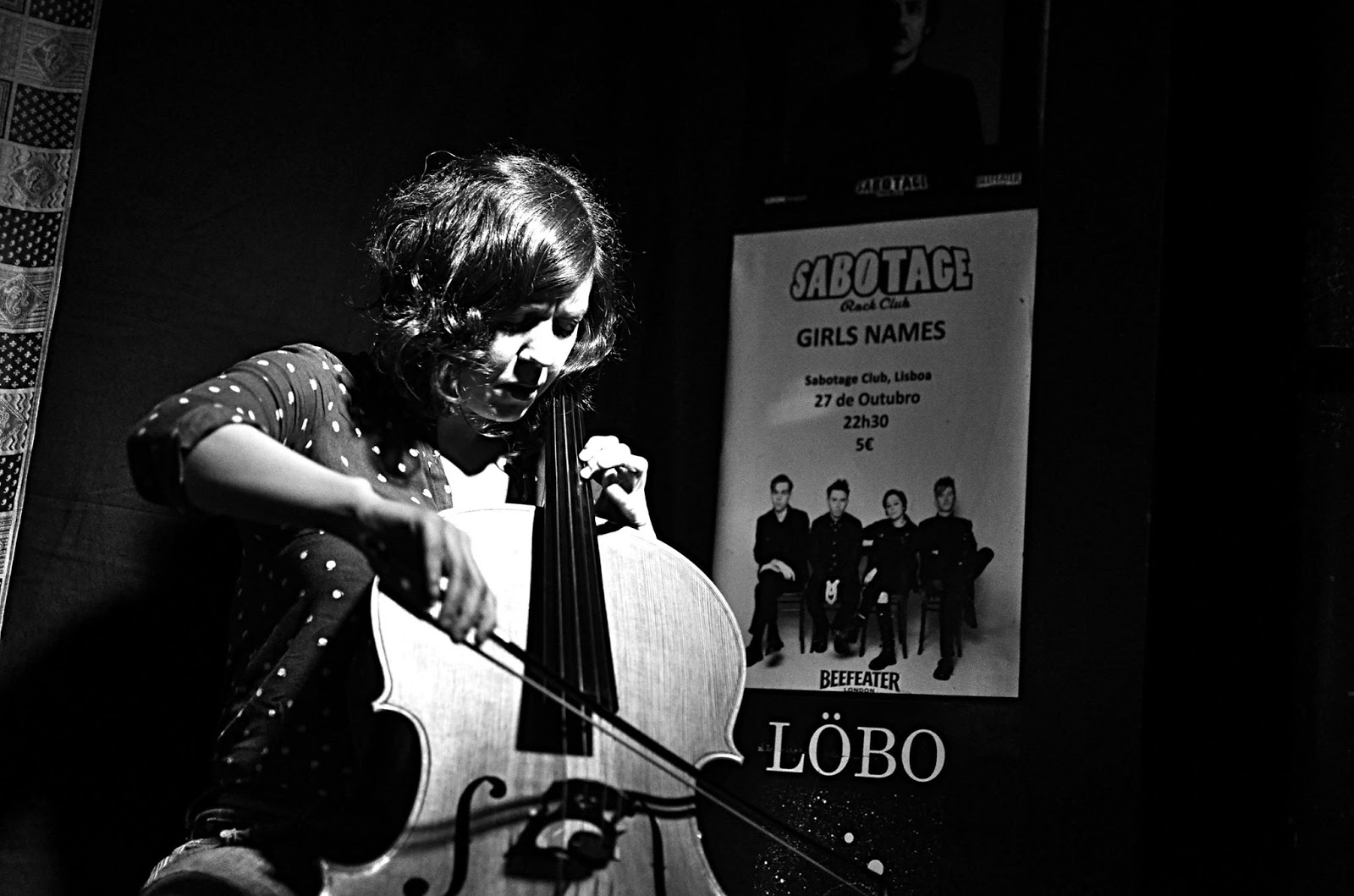
I actually get a kick out of checking out origins and influences. Why things sound like they sound in certain areas of the world. The context behind the sounds and how it can kick you in the teeth when you think about certain aspects. The back and forth of sounds. Like a bad translation that got re-translated into the original language. It will not be the same text, you know what I mean? Some things can get lost in translation, some things are added to the original text. A different interpretation of sorts.
Can you share details about your upcoming album?
Well, more than anything else, we’re really curious of how people will react to it. For us, it’s the following step of what we’ve been doing for the past seven years. More of the same but different. Originally me and João wished to explore a more acoustic or gentle side and go back to the same logic as in “Conjuring Up Demons” or “Dead Of Nigh” from our first record. Being the brutes that we are sometimes, that plan failed a bit but it is slightly more refined. We like to hear the natural tones of instruments and amplifiers. Acoustics and such. As said previously, now that we’re playing with more persons, the record sounds different. More sensitivities to appease, so to speak.
We’re also very much into dynamics. The intensity of things has to be just perfect for the full effect of a song. We like to take people a bit by surprise and draw them near to what’s being played. To listen more than to hear. Since we play a bit loud sometimes, we always felt that some details that might tidy up a song get lost in the midst of the sonic maelstrom. We believe the recordings are a bit more balanced this time around.
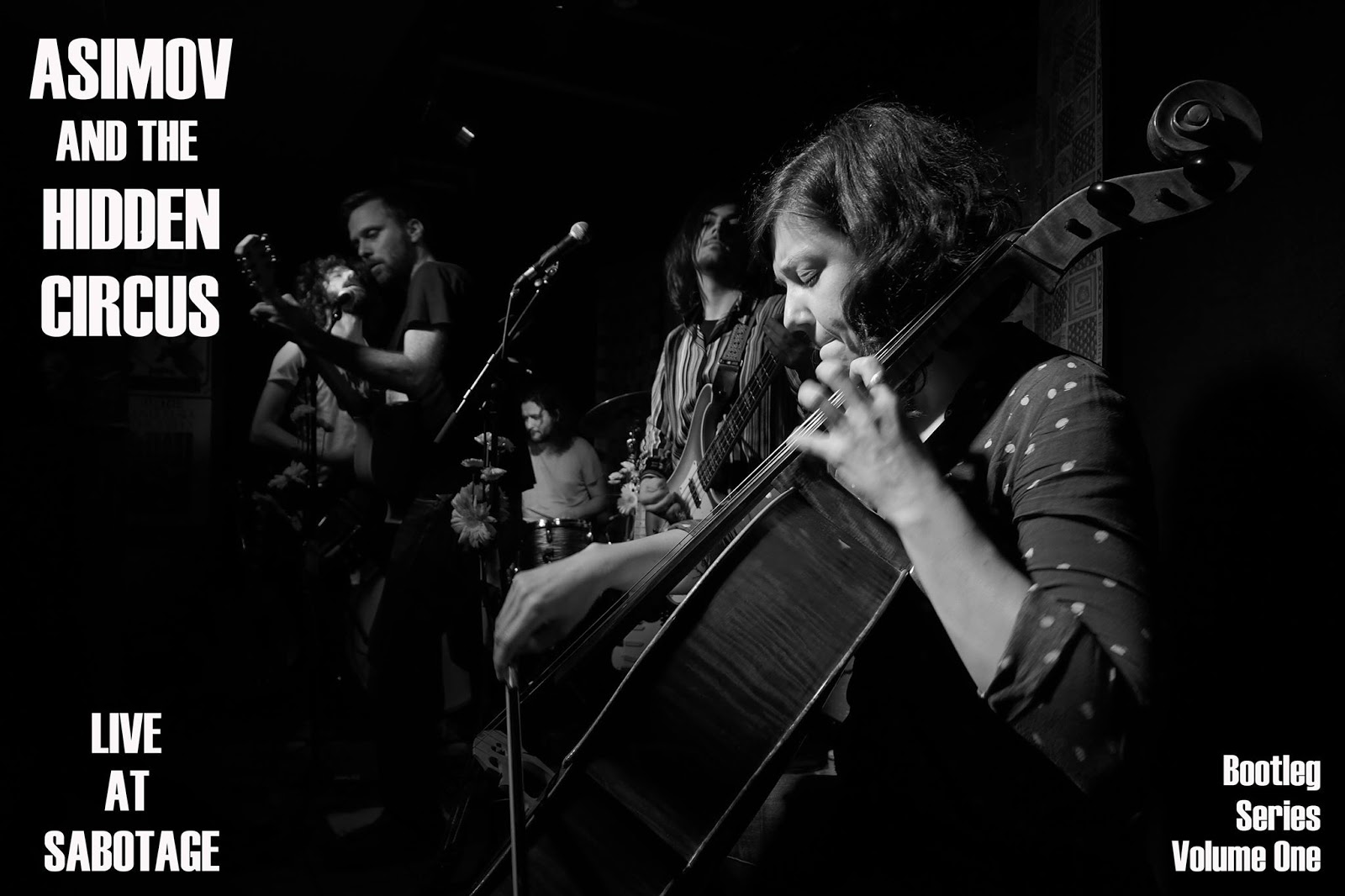
Unlike the previous records, we are also getting into recording everything live as much as we can as the basis so we believe it has a more live performance feel instead of a more cerebral thing.
What kind of process do you have at mastering material for the release?
What works in dynamics is always a good tactic. Usually we also think on duration of records. Though we prefer vinyl, in the end we just want to listen to music, it doesn’t really matter the format. What does matter is what’s in it. With CD’s everybody was making 70, 80 minute records. Way too long in most cases. We tend to think in records we love and how long they are. Master Of Reality is what, 34 minutes long? No wonder it’s that great. It only takes a little bit of time. Same thing with Creedence Clearwater Revival. Half an hour albums. Done.
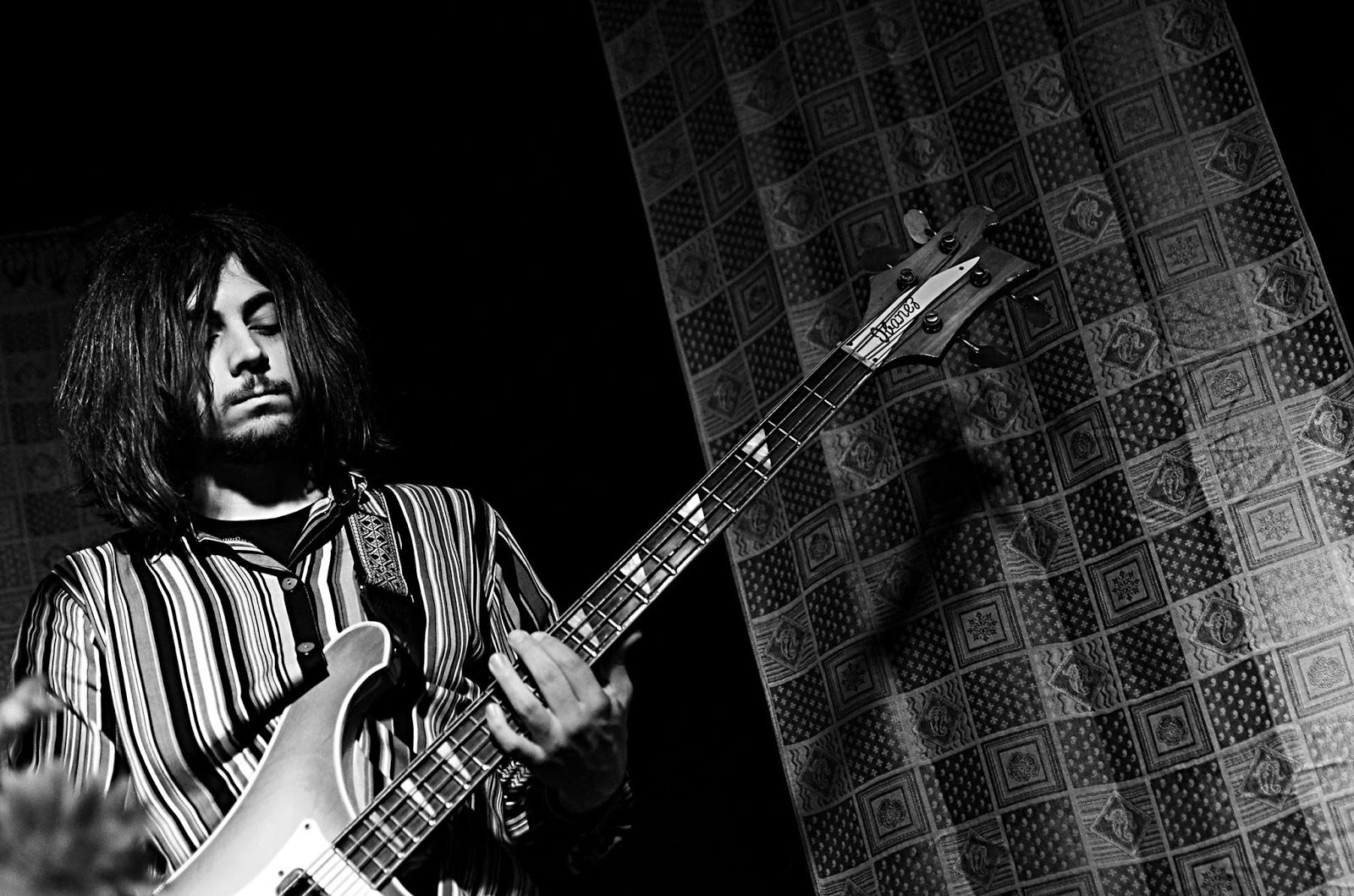
We also consider what kind of record would I buy. As João says quite often “I would buy this record if it was another band”. It’s also an interesting thing that when we hear the playbacks of recordings, we distance ourselves from the fact that it’s us that we’re hearing. We’re highly critical of ourselves. “This doesn’t work”, “That worked” and “Where did that come from?” are the usual commentaries we make about our music.
Can you share details how your albums such as Overseas and Truth were recorded?
We recorded everything ourselves. Out of our experience recording in other places and with other people, there’s always something that was lost between what we set out to do and the final result. Different perspectives of how to record and how things should sound. This way, if the sound quality is below par, then we were the ones responsible for that. Call it accountability. We just got tired of hearing sound engineers saying “That was then, now it’s different, this is the way to do it” and “That’s not supposed to sound like that, the bass doesn’t use distortion” and many love the “We’ll add it later in post production”. Most of the ones I encountered are deaf to the fact that records back in the 60’s and 70’s were recorded with what is now considered technical limitations but sound as crystalline as something recorded today. It is always a struggle to tell people “You know what? Just because one can use better equipment, that doesn’t mean we have to do it as everybody else”. We don’t really care if it sounds scruffy. We enjoy scruffy sounding records. Even if to say it sounds as it is because if you see us live, it will sound similar.
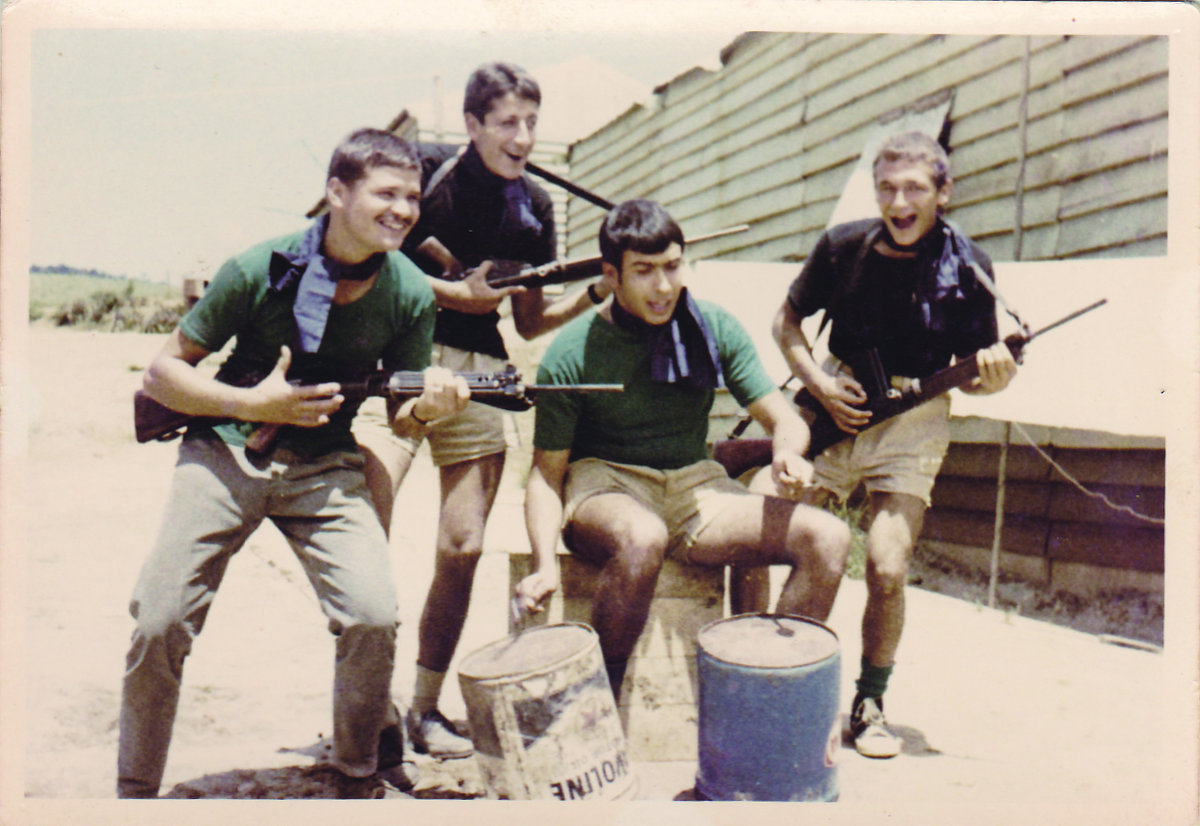
Overseas and Truth were recorded using the same technique. First the drums and then the rest of the instruments. We also use the least amount of microphones in order to capture the sound of the drums as a whole instrument rather than separate it into “here’s the snare, here’s a tom tom, there’s the bass drum”, etc. And we’re stuck in the same room so there has always been an actual interaction between the delivery of one towards the delivery of the other. Hence people think we recorded those records in live takes which didn’t occur.
Recording for us is also a learning process. With Overseas we exaggerated a bit with the scruffiness. We went for the zamrock feel of what could have been the conditions of their recordings but we went a bit too far perhaps. With Truth we refined it but we still used the same process. Only now are we toying with live takes.
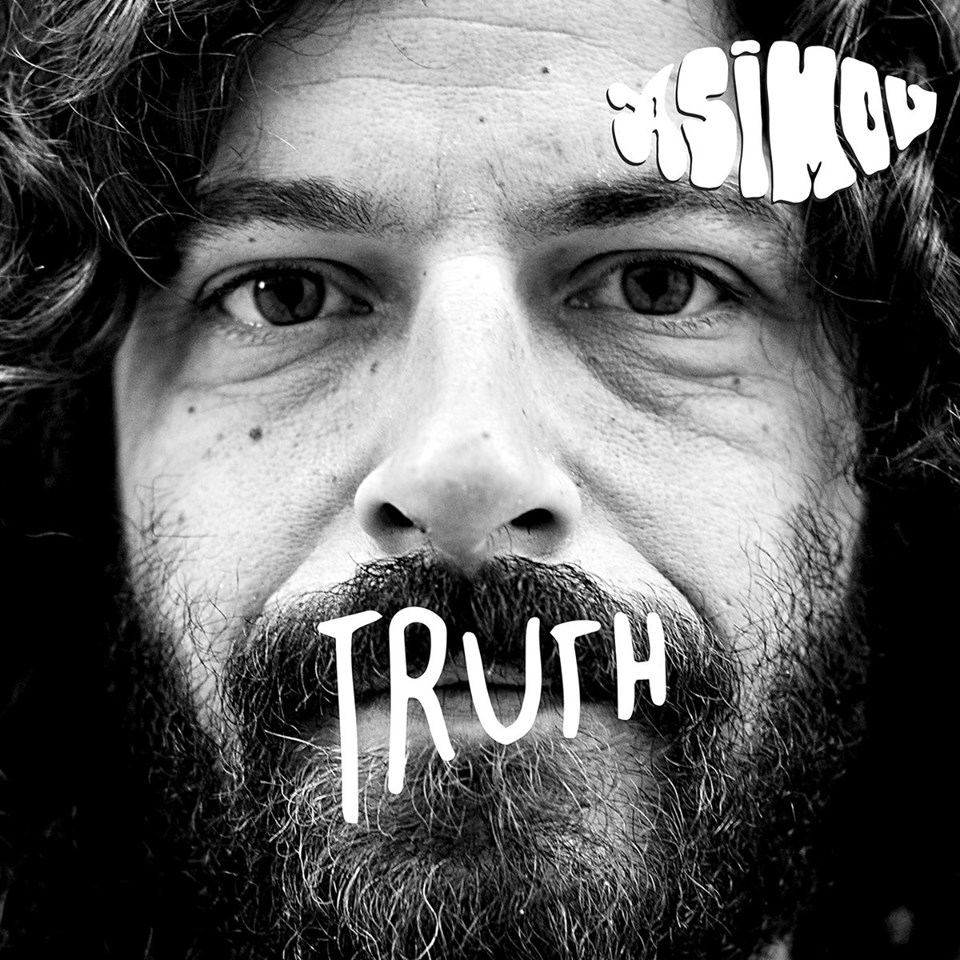
What’s more important to us is if we like what we hear, we’ll go for it! The rest is just details. It might not be the most powerful sounding record with thunderous sounding drums and fat guitars but our records sound as we intended. But even when we record, we are always in the same room.
How would you compare it to your upcoming album?
This time around we went for a more direct approach. To capture more the performance of the songs rather than just the songs. But it is still the same thought process behind the whole thing. We feel that the most direct raw material we capture, the best it is to work with. The better it sounds when captured, the less we have to worry with in mixing.
As said in the previous answer, it’s a learning process and with this record we tried various things. I believe there wasn’t two songs recorded the same way on this record. A mix of what could be improved from one recording to the next one and what recording technique will bring out the best elements for a certain song. Somehow, it’s pretty tied up together as a whole.
Every release so far has an interesting cover. Is there a certain story behind Overseas and Truth?
Overseas has a picture of my dad in the Portuguese Overseas war on the cover. Ultramar in Portuguese. Americans had to deal with Vietnam, we had to deal with Ultramar. A different type of conflict but war is war nonetheless and war is just stupid wherever and whenever it happens. He was stationed in Angola from ‘63 to ‘65. That’s when The Beatles appeared. So what they are doing in the photo, they are pretending to be The Beatles. With machine guns instead of guitars. João’s dad was also in Ultramar a bit later, ‘71 to ‘73, I believe. So you have both our dads war photos on the inside of the gatefold sleeve. Of course we don’t support war and let’s not forget Portugal had the longest fascist regime in Europe. It is our homage not only to our fathers but also to anyone who had to go to fight not really knowing why. We’re talking about young men 20, 21 years old being told to go far away from their homes to do something most didn’t really understand the reason, nor their military feats. Being a fascist regime there was censorship so not that many people knew about much of what was going on. The ones that knew and weren’t fascist had to flee the country or use very cunning wordplay to get their message across. At least Bob Dylan could say whatever he wanted. José Afonso or José Mário Branco didn’t have that luxury.
With Truth, it’s a more simple concept. What you see is what you get. This is ASIMOV. Since me and João get mistaken by one another quite often, we decided to have both the cover and the back cover to be the same. Not to confound but to have that “what’s going on here?” feel of having someone picking a record with a giant portrait on the cover, flip it over and have an identical person on the back cover. Hahahaha!!! The inside photo was taken on the backstage of a festival in Évora, Portugal, called Black Bass. Like most of our pictures these past few years, we rely on our good friend and photographer Pedro Roque for the pics. We believe it creates continuity. That backstage photo is one of my favorite photos of the band. That’s what we enjoy doing, relaxing. Most of the times at least, hahaha!
Do psychedelics play a large or integral role in your songwriting, recording or performance processes when it comes to music?
Not really. We don’t really discuss our habits in public actually. We do our own thing and we believe if someone knows what makes their clock tick, then do it. People can be so judgemental or think that one has to enjoy certain things because of the music we like and make. So we keep that sort of info to ourselves. But no, psychedelics have nothing to do with what we come up with. Our songs are already a product of our imagination, I don’t think we need enhancers. We’re pretty screwed up as we are, hahahaha!
What, if anything, do you have planned as far as touring goes for the rest of the year?
We have a few gigs getting lined towards up for Autumn/Winter but all is still a bit up in the air. We were planning on touring in November somewhere in Europe but let’s see how it goes. We’re in no rush to go out there and tour for the sake of touring. We want and we know we will do it but when the time is right rather than just because it has to be done. We already have day jobs and music is to travel. We work on it but we have a whole lot of fun working on it.
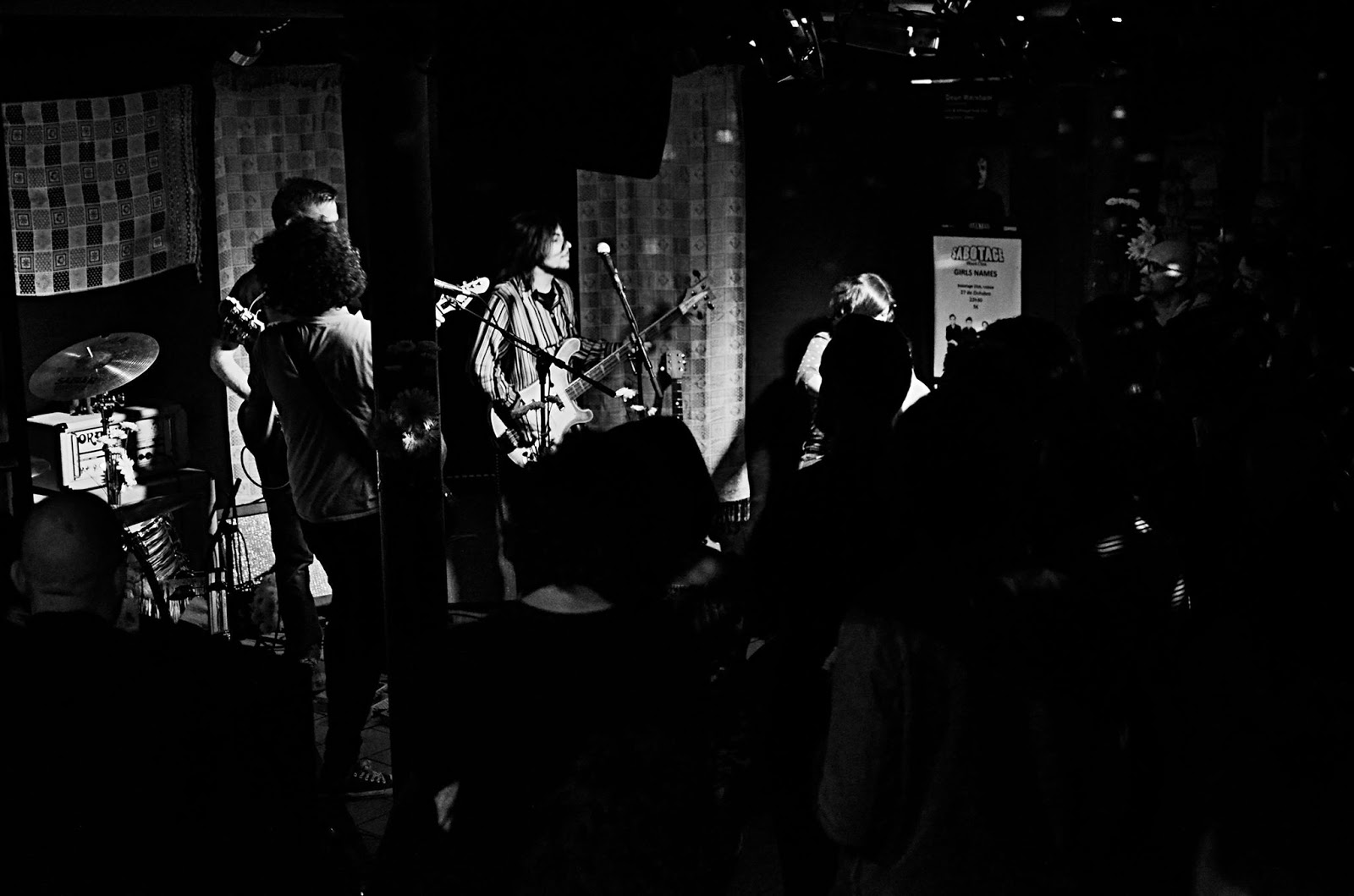
In your dreams, who are you on tour with?
We get this question quite a lot actually. I believe the consensus would be Mudhoney. They are without a doubt one of the bands we respect the most. From what we read and saw in interviews, liner notes and documentaries, they seem to be very intelligent people with at least one foot in the ground.
Do you have anything else going on right now as far as music goes? Are there any bands or side projects that I missed?
Well, there’s this sort of jinxed project called Agadir which was a 3 hour long jam session we did with Bruno Monteiro (Stone Dead, Mr. Gallini) on 2nd drums and Anthony Meyer (Sacri Monti, Radio Moscow) on bass. The plan is to release the recordings on tape only but for now we only have it online. It is something that needs to see the light of day properly.
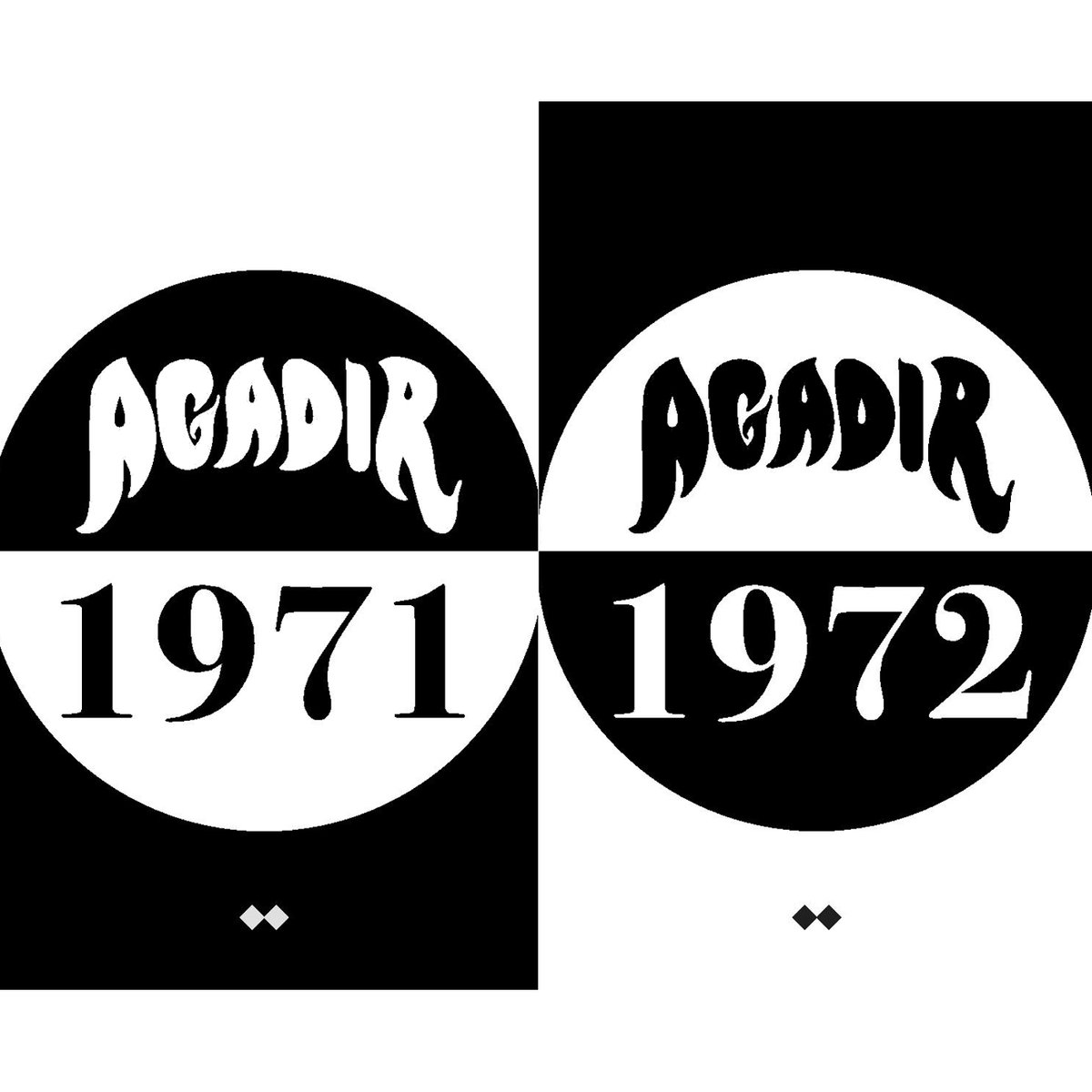
Who are some of your personal favorite bands that you’ve had a chance to play with over the past few years?
There has been quite a few bands actually. Endless Boogie was a really fun evening. Kikagaku Moyo was another band we really enjoyed playing with and The Cosmic Dead are also on a special corner of our hearts and minds. The icing on the cake was to be able to see Hills live with Rainer Fiske at this festival we played in on the same day. Träd, Gräs Och Stenar played on the same day too! Festival wise, it was also quite cool to play in the afternoon immediately before Bardo Pond hit the stage. That was also the day Hawkwind performed at the same festival. Pretty neat!
What are some future plans?
Right now we’re focused on finishing our new record. We’re just adding the finishing touches to it. Only after it is finished will we worry about releases and promotions. There’s that possible Autumn tour and a few concerts lined up until the end of the year but it’s all in the open. One of our motto’s is “Let’s see what happens…”
Let’s end this interview with some of your favourite albums. Have you found something new lately you would like to recommend to our readers?
Our favorite records are quite basic. The first six Sabbath albums, Secret Treaties by Blue Öyster Cult, Love It To Death and Killer from the Alice Cooper Group, Space Ritual by Hawkwind, Cosmo’s Factory by Creedence, Choice Cuts from Masters Apprentices’, almost anything by The Beatles and a ton of others. Too many to list here! There are a few things we ‘discover’ from time to time but nothing as marking as those first impressions of records you listen when you started to really enjoy music.
What I can recommend though is to check out Joana Guerra and Pedro Madeira’s solo stuff. She has two records and Pedro only has a couple of CD-r’s and online releases. But I definitely recommend everyone to check it out. Not your basic heavy stuff but just different and equally as powerful.
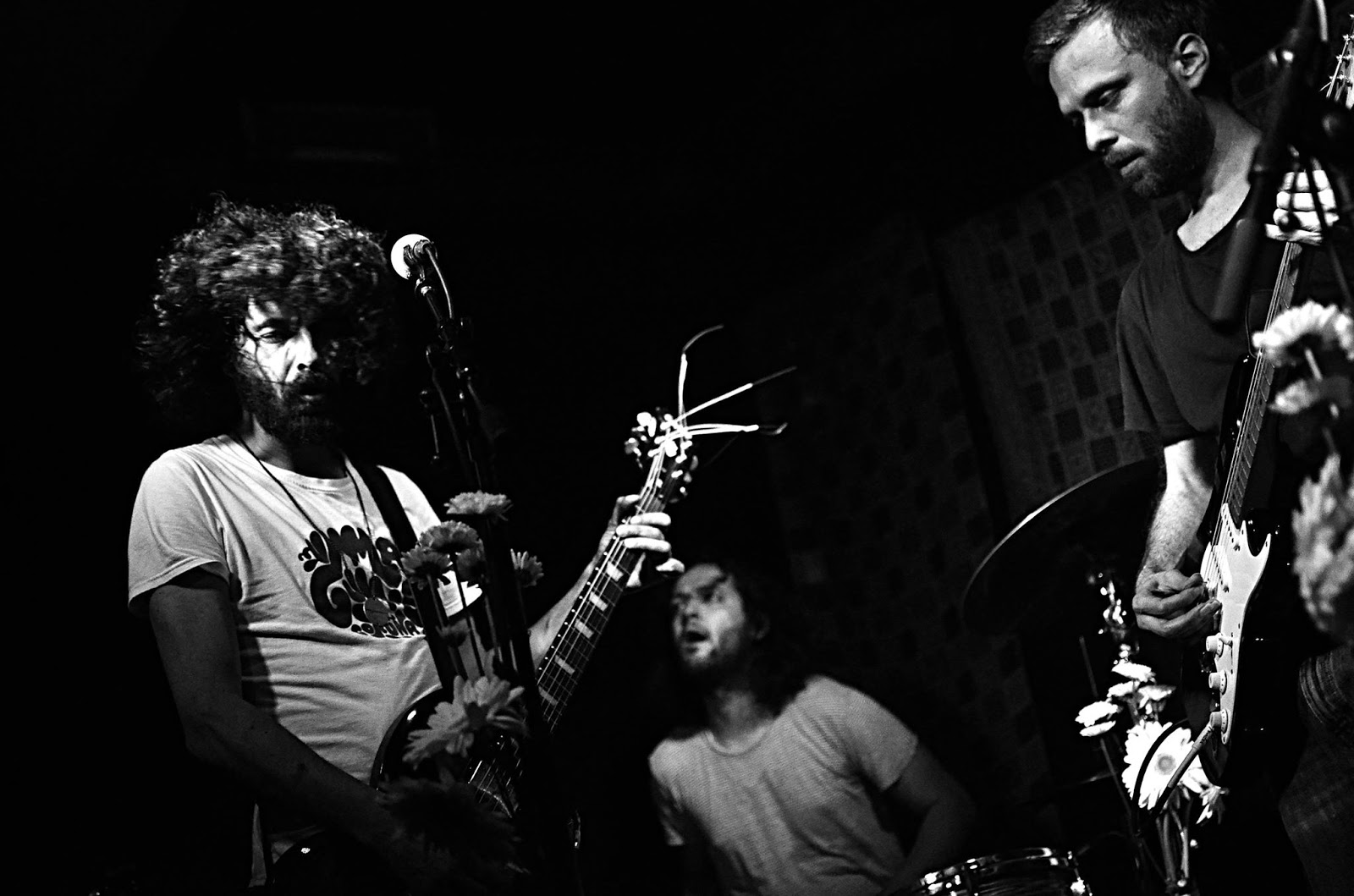
Thank you. Last word is yours.
Let’s just see what happens!
p.s. Check Brainwashed By Amalia (listen). This was a reunion by Brainwashed By Amalia. We never released anything. That’s João on drums, Peter Wood on guitar, me on bass and vocals and Tiago Silva on the second guitar. He has an experimental guitar career both under his own name and also as a part of the guitar duo The Orm with Filipe Felizardo (Portuguese artist, musician and master chutney maker).
– Klemen Breznikar

